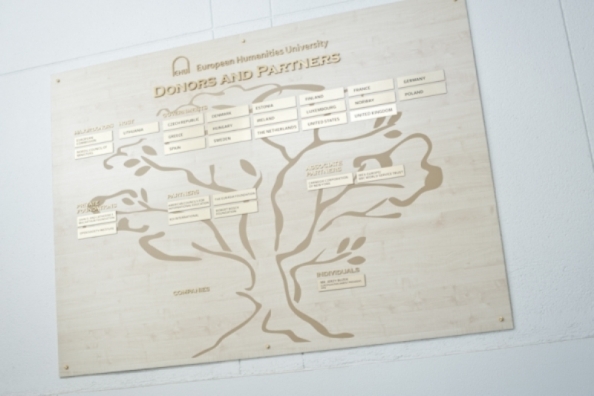Recommendations for the reorganization of the EHU academic and administrative structure were provided in the conclusions of the report by experts of the Swedish Development Advisers (SDA), appointed by the Swedish International Development Cooperation Agency in order to assess the existing administrative arrangement of the University. Corresponding assessments of the EHU governance systems were conducted by SDA experts earlier in 2016, resulting in the new GB membership and update of the composition of the General Assembly of Part-Owners.
EHU GB Chairman Per Carlsen says: “By reorganizing the EHU administrative and academic structure the Governing Board responds to the expectations and requests of the University donors’ community in ensuring ever efficient operations of EHU. Governing Board expects that the new academic and administrative setting will foster teamwork and interdisciplinary cooperation among EHU faculty and staff”.
Following the reform of the administrative structure, a more favorable ratio between administrative staff and faculty, as well as additional savings will be ensured by means of merging and reconfiguring the current setting of administrative units, supervised by Rector. Namely, four academic departments and two academic centers, as well as Mediahub will be transformed into Academic Department of Social Sciences and Academic Department of Humanities and Arts. The Center for Distance Learning and the library will be integrated into the Academic Development Unit, whilst students will enjoy one stop shop approach to the everyday needs of accommodation and visa matters, as well as social activities through the expanded Student Services Unit. University finance and human resources units are uplifted to the Rector’s direct supervision.
After implementation of the aforementioned organizational reform as well as the University’s relocation to the former Augustinian monastery in the Vilnius Old Town and implementation of the new IT systems, the University management estimates that annual savings of €300 000 will be reached.

